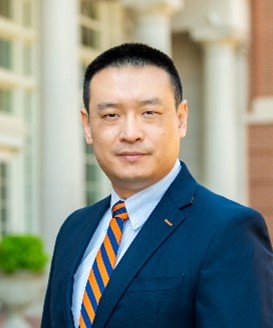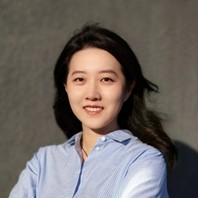Center for Multiscale Modeling of Materials and Molecules
Promoting on-campus education, research, outreach, and collaborations in scientific computing
CM4 Faculty

Rafael C. Bernardi, Assistant Professor
Department of Physics
College of Sciences and Mathematics
Auburn University
Group website: https://compbiophysics.auburn.edu/
Short Bio: Dr. Rafael Bernardi is an Assistant Professor of Biophysics in the Department of Physics at Auburn University. Prior to joining Auburn, Dr. Bernardi served as a Postdoctoral Researcher (2012-2017) and later as a Research Scientist (2017-2020) at the Beckman Institute at the University of Illinois. He is a co-investigator at the NIH Center for Macromolecular Modeling and Visualization, renowned globally for the development of NAMD and VMD software. Dr. Bernardi's primary research focuses on the mechanics of proteins and the behavior of protein complexes under mechanical load, a critical area in biomedicine. His work has significant implications for understanding bacterial adhesion during infections, virus interactions with human proteins, and enzymatic activity within the gut microbiome.
Research interests: biophysics; mechanobiology; network analysis; molecular dynamics simulations; computational structural biology.
Group website: https://compbiophysics.auburn.edu
Google scholar: https://scholar.google.com/citations?user=eTRwqWYAAAAJ&hl=en
ORCID: https://orcid.org/0000-0003-0758-2026

Michael Howard, Assistant Professor
Department of Chemical Engineering
Samuel Ginn College of Engineering
Auburn University
Short Bio: Michael Howard received his B.S. in Chemical Engineering from Penn State University in 2013 and his Ph.D. in Chemical Engineering from Princeton University in 2018, where he was advised by Thanos Panagiotopoulos. He was then a postdoctoral fellow at the University of Texas at Austin with Tom Truskett. His research uses computer simulations and statistical mechanics to understand and design soft materials—including nanoparticles, polymers, and composites—with a focus on nonequilibrium problems where thermodynamic and transport effects compete to determine a material’s structure and properties.
Research interests: soft matter; complex fluids; self-assembly; molecular simulation; high performance computing.
Group website: https://mphowardlab.github.io
Google scholar: https://scholar.google.com/citations?user=1OUdHbQAAAAJ
ORCID: https://orcid.org/0000-0002-9561-4165
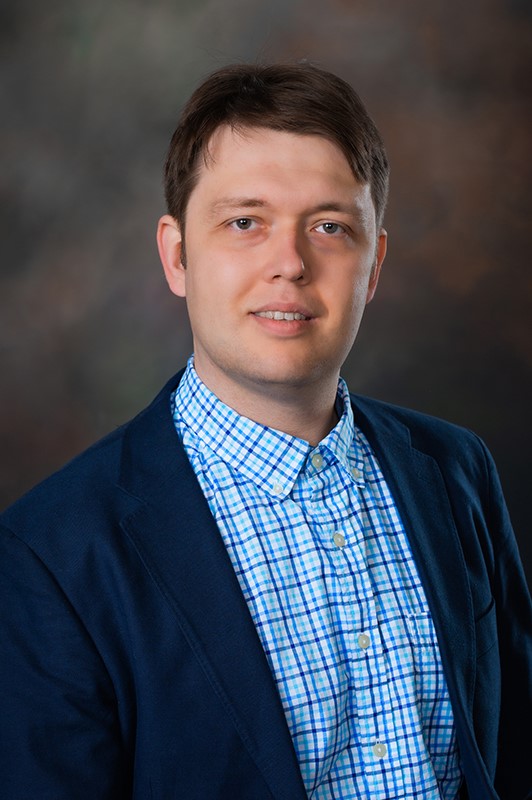
Konstantin Klyukin, Assistant Professor
Department of Materials Engineering
Samuel Ginn College of Engineering
Auburn University
Short Bio: Konstantin Klyukin obtained his PhD in Condensed Matter Physics in 2016 from Saint Petersburg State University, Russia. After graduation, he moved to the USA and was employed as a post-doctoral researcher at the University of Nebraska-Lincoln and Massachusetts Institute of Technology. He is currently the Assistant Professor of Materials Engineering at Auburn University. His research interests lie in connecting ab initio simulations and machine-learning algorithms to accelerate the design of novel materials for energy and information technologies. His group employs various simulation techniques to understand atomic-scale processes at electrochemical interfaces and investigate defect-induced phenomena in functional materials.
Research interests: computational materials design, atomistic simulations, electrochemical interfaces, nanoelectronics
Group website: http://www.klyukin.org
Google scholar: https://scholar.google.com/citations?user=qgFDWY0AAAAJ&hl=en&oi=ao
ORCID: https://orcid.org/0000-0001-8325-8725
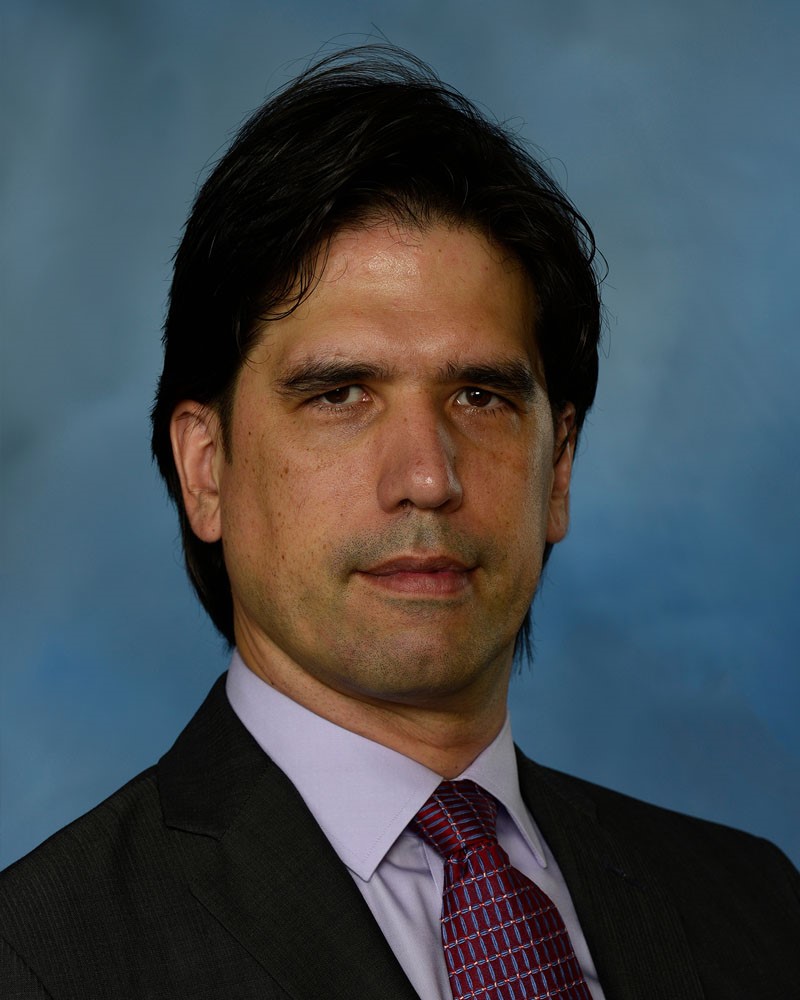
Marcelo A. Kuroda, Thomas and Jean Walter Associate Professor
Department of Physics
College of Sciences and Mathematics
Auburn University
Short Bio: Marcelo Kuroda earned his BS in physics from the University of Buenos Aires (Argentina) in 2002, and his PhD in physics from University of Illinois – Urbana-Champaign (2009). Before joining Auburn University in 2014, he was a postdoctoral research associate at IBM T.J. Watson in New York. His research expertise is in the areas of theoretical/computational condensed matter physics and materials modeling for applications ranging from basic properties of materials to energy harvesting and storage to electronic device and sensor applications. His research employs a variety of approaches that range from large-scale first-principles calculations to analytical models and semi-empirical descriptions.
Research interests: materials physics; electronic and thermal transport; device physics; interfaces; computational material design.
Group website: https://www.auburn.edu/cosam/departments/physics/physics-faculty/kuroda/index.htm
Google scholar: https://scholar.google.com/citations?user=2vWEY4cAAAAJ
ORCID: https://orcid.org/0000-0002-7123-2138

Walter Malone, Assistant Professor
Department of Physics, Department of Materials Science and Engineering
College of Sciences, College of Engineering
Tuskegee University
Short Bio: Walter Malone earned his PhD in computational physics in 2019 from the University of Central Florida, Florida, U.S.A. under the supervision of professor Abdelkader Kara. His dissertation focused on modeling the interface between small molecules and transition metal surfaces. After receiving his PhD, he accepted a postdoctoral research position at Los Alamos National Laboratory. He began his career as an assistant professor of physics at Tuskegee University in 2019. He also holds a join appointment in the material science and engineering department. His current research interests include the development and utilization of machine learning methods to study materials at the atomic scale, and quantum chemical calculations of interfaces and 2D materials.
Research interests: quantum chemical calculations; heterogenous catalysts; machine learning; excited electronic states.
Group website:
Google scholar: https://scholar.google.com/citations?user=_9wBAx4AAAAJ&hl=en&oi=ao
ORCID: https://orcid.org/0000-0001-8245-322X

Steven O. Mansoorabadi, J. Milton Harris Associate Professor
Department of Chemistry and Biochemistry
College of Sciences and Mathematics
Auburn University
Short Bio: Prof. Mansoorabadi earned his Ph.D. in Biochemistry from the Enzyme Research Institute at the University of Wisconsin-Madison under the supervision of Prof. George H. Reed. He then moved to The University of Texas at Austin where he was a post-doctoral fellow in the laboratory of Prof. Hung-wen (Ben) Liu. He started his independent career in 2012 in the Department of Chemistry and Biochemistry at Auburn University and is currently the J. Milton Harris Associate Professor of Biochemistry. His research interests include structural and functional genomics, cofactor and natural product biosynthesis, mechanistic enzymology, and computational biochemistry.
Research interests: Bioenergetics; biomolecular spectroscopy; machine learning; molecular dynamics; quantum chemistry.
Group website: https://www.auburn.edu/cosam/faculty/chemistry/mansoorabadi/index.htm
Google scholar:
ORCID: https://orcid.org/0000-0002-6369-3815
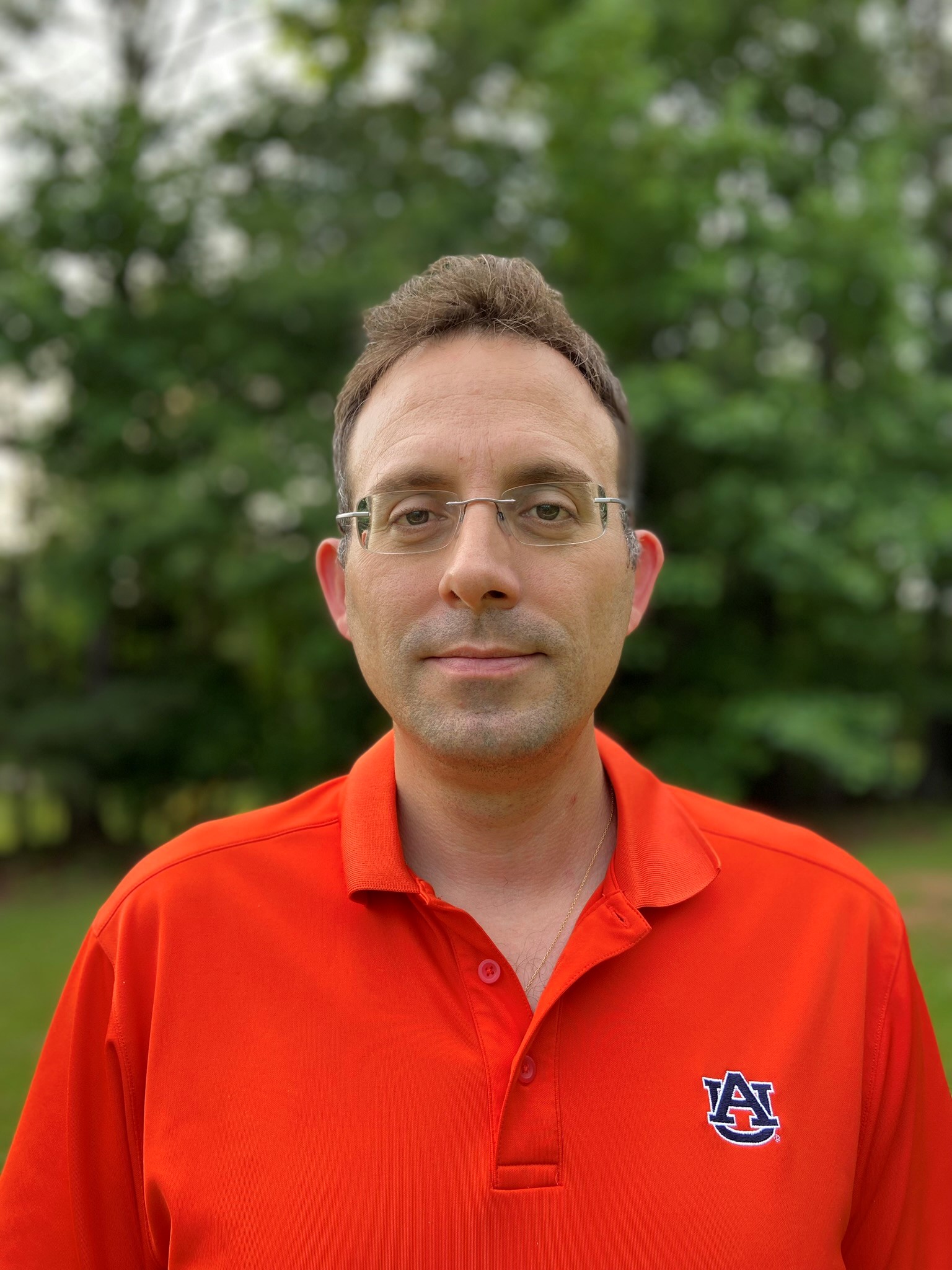
Evangelos Miliordos, James E. Land Associate Professor
Department of Chemistry and Biochemistry
College of Sciences and Mathematics
Auburn University
Short Bio: Evangelos Miliordos earned his PhD in computational chemistry in 2010 from the National and Kapodistrian University of Athens, Greece, under the supervision of Prof. Aristides Mavridis. He then moved to the United States of America and was employed as post-doctoral researcher by the Michigan State University, the Pacific Northwest National Laboratory, and the University of Delaware. He started his independent career in 2016 at the department of Chemistry and Biochemistry of Auburn University, and he is currently the James E. Land Associate Professor. His research interests include quantum chemical calculations on transition metal compounds and systems with solvated electrons.
Research interests: quantum chemical calculations; molecular catalysis; diffuse/solvated electrons; excited electronic states; quantum computing materials.
Group website: https://aub.ie/miligroup
Google scholar: https://scholar.google.com/citations?hl=en&hl=en&user=vZhCfB8AAAAJ
ORCID: https://orcid.org/0000-0003-3471-7133
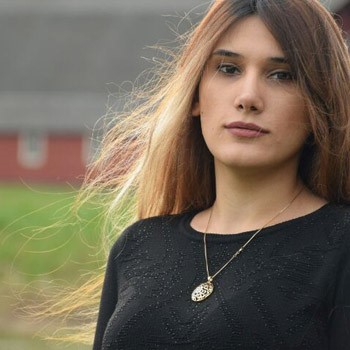
Elham Mirkoohi, Assistant Professor
Department of Mechanical Engineering
College of Engineering
Auburn University
Short Bio: Prof. Mirkoohi's convergence research intersects manufacturing, mechanical engineering, materials science and engineering, and computer science. Prof. Mirkoohi joined the Auburn University faculty as an Assistant Professor in 2021. Previously, she was a postdoctoral scholar research associate in the Department of Mechanical Engineering at Georgia Institute of Technology. She was also the executive coordinator of Novelis Innovation Hub at Georgia Institute of Technology. She received her Ph.D. in mechanical engineering from Georgia Institute of Technology, and B.Sc. and M.Sc. from the University of Tehran and Oregon State University, respectively. She worked at Tesla Motors and the Boeing Company as a research intern and research assistant, respectively.
Research interests: Laser Based Additive Manufacturing Processes; Cold Spray Process; Process Modeling; Microstructure Modeling; AI, Machine Learning; Multi-Principal Element Alloy Systems.
Group website:
Google scholar: https://scholar.google.com/citations?hl=en&user=SFRNS-sAAAAJ
ORCID: https://orcid.org/0009-0008-8866-1917
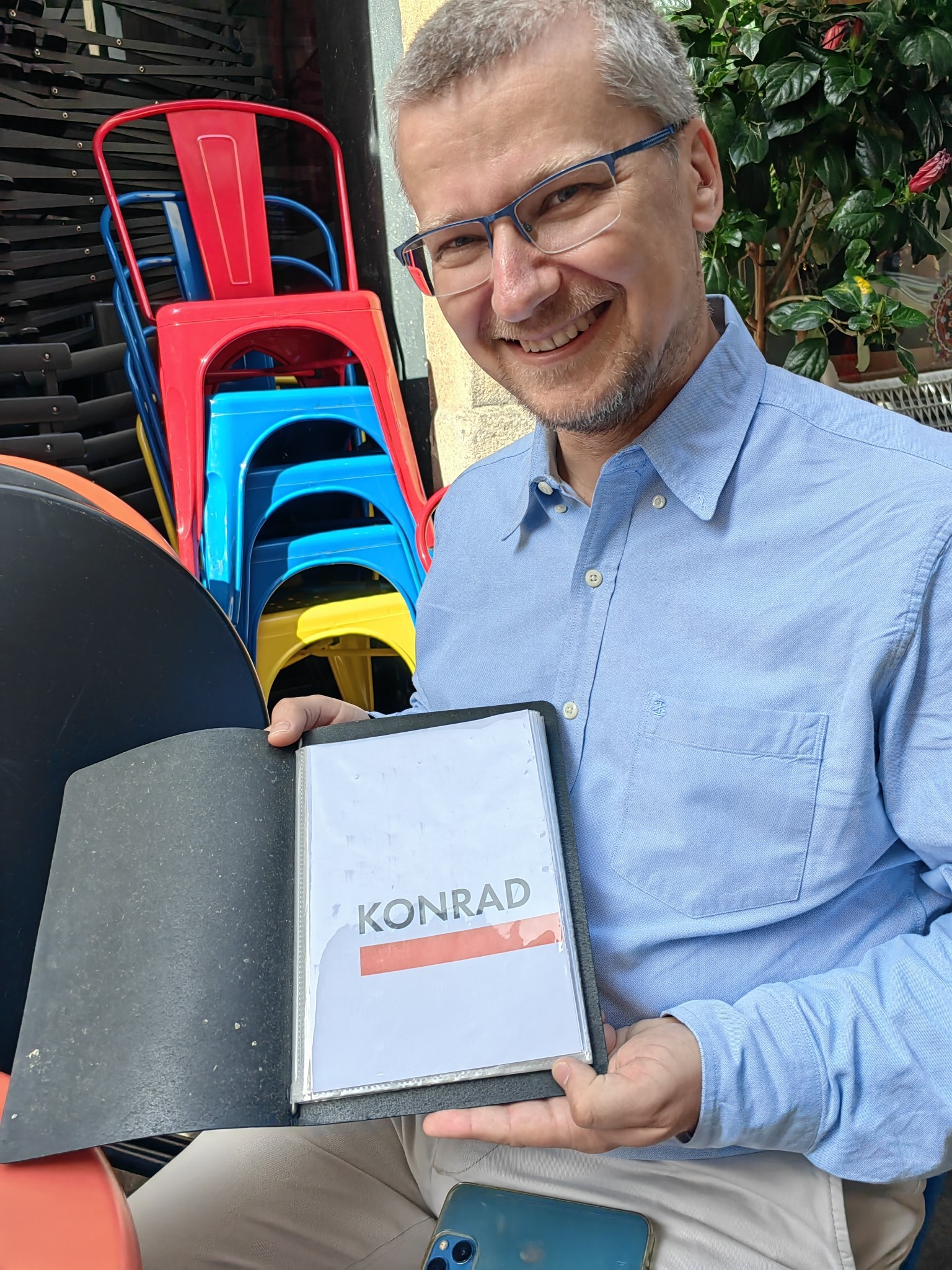
Konrad Patkowski, S. D. and Karen H. Worley Professor
Department of Chemistry and Biochemistry
College of Sciences and Mathematics
Auburn University
Short Bio: Konrad Patkowski earned his PhD in computational chemistry in 2004 from the University of Warsaw, Poland, under the supervision of Prof. Bogumil Jeziorski. He then became a post-doctoral researcher at the Department of Physics and Astronomy, University of Delaware, in the group of Prof. Krzysztof Szalewicz. He was appointed as an assistant professor at the department of Chemistry and Biochemistry of Auburn University in 2011 and rose through the ranks to his current position as S. D. and Karen H. Worley Professor and Graduate Program Officer. His research interests center on accurate quantum chemical calculations of noncovalent interaction energies and include both method development and applications. He is a co-author of the open-source quantum chemistry program Psi4.
Research interests: quantum chemical calculations; intermolecular interactions; symmetry-adapted perturbation theory; high-accuracy benchmark data; intramolecular nonbonded interactions.
Group website: https://www.auburn.edu/cosam/faculty/chemistry/patkowski/research.htm
Google scholar: https://scholar.google.com/citations?user=pR77IBIAAAAJ&hl=en
ORCID: https://orcid.org/0000-0002-4468-207X

Filip Pawłowski, Assistant Research Professor
Department of Chemistry and Biochemistry
College of Sciences and Mathematics
Auburn University
Short Bio: Filip Pawłowski received his MSc in Chemistry from the Nicolas Copernicus University in Torun, Poland and his PhD in Theoretical Chemistry from Aarhus University, Denmark (under the supervision of Professor Poul Jørgensen). After working as a Postdoctoral Fellow with Professor Trygve Helgaker at the University of Oslo, Norway and, subsequently, holding several academic positions in Poland and Denmark, he joined Auburn University in 2017, where he was working in the group of Professor J.V. Ortiz as an Assistant Research Professor. In 2023, he transitioned to an independent Assistant Research Professor position at Auburn University. His main research interests include novel approaches to coupled cluster and perturbation theories (which resulted in a recent formulation of novel model–cluster perturbation theory), response function theory development (he developed and programmed CC3 response functions and recently provided a new formulation of response theory) and applications to nonlinear optics, development of electron propagator theory, and applications of accurate quantum chemistry to systems of experimental interest, both in gas phase and in solution.
Research interests: quantum chemistry theory and method development; interaction of molecules in ground and excited states with electromagnetic fields; solvation effects; electron binding energies; accurate and efficient calculations.
Group website:
Google scholar: https://scholar.google.dk/citations?user=-Hj6yHcAAAAJ&hl=en
ORCID: https://orcid.org/0000-0002-5928-2140
Shuai Shao, Associate Professor
Department of Mechanical Engineering
Samuel Ginn College of Engineering
Auburn University
Short Bio: Dr. Shuai Shao received his Ph.D. in Mechanical Engineering from Washington State University in 2012. He worked in the Los Alamos National Laboratory as a post-doc for over three years after graduation. In Feb 2016, Dr. Shao joined the Center for Advanced Vehicular Systems (CAVS) at Mississippi State University as a post-doc, where he acquired his current research interest in additive manufacturing. In Jan 2017, he joined the Department of Mechanical and Industrial Engineering of Louisiana State University as an assistant professor. Since Fall 2019, he has been an Associate Professor and subsequently a tenured Associate Professor of Mechanical Engineering at Auburn University, where he is also a core faculty member of NCAME. Dr. Shao’s overall research theme concerns with understanding the role of generalized defects (including both manufacturing-induced and crystallographic) in the deformation and degradation of metallic materials, especially the ones fabricated via advanced manufacturing technologies.
Research interests: Additive Manufacturing; Computational Materials Science and Engineering; Multiscale Modeling; Fatigue and Fracture; Materials Characterization.
Group website: https://www.eng.auburn.edu/ncame
Google scholar: https://scholar.google.com/citations?user=0MvfUCUAAAAJ&hl=en
ORCID: https://orcid.org/0000-0002-4718-2783
Yinong Zhou, Assistant Professor
Department of Physics
College of Sciences and Mathematics
Auburn University
Short Bio: Yinong Zhou is an Assistant Professor in the Department of Physics at Auburn University. Before joining Auburn University, she was a Postdoctoral Scholar in the Department of Physics and Astronomy at University of California, Irvine from 2021 to 2024, advised by Prof. Ruqian Wu. She obtained her Ph.D. in Materials Science and Engineering at University of Utah in 2021, advised by Prof. Feng Liu and her B.S. in Applied Physics at University of Science and Technology of China (USTC) in 2016. Her research focuses on developing and applying density functional theory (DFT) simulations coupled with theoretical models to design and predict diverse nanomaterials and quantum materials and reveal their novel electronic, topological, magnetic, optical, and phononic properties.
Research interests: quantum materials calculations; density functional theory; topological materials; chiral materials; superconductors.
Group website: https://yinongzhou.github.io
Google scholar: https://scholar.google.com/citations?user=-Pz-7TQAAAAJ&hl=en
ORCID: https://orcid.org/0000-0002-4427-0032

